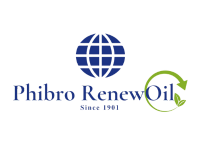The Lifecycle of Used Cooking Oil: From Kitchen to Renewable Energy
- Tyler Zemantic
- May 28, 2025
- 3 min read

For most restaurants, used cooking oil is just a byproduct of a busy shift. But what if we told you that your leftover fryer oil could help fuel a cleaner planet?
Thanks to modern recycling processes, used cooking oil (UCO) is no longer considered waste — it’s a valuable resource that plays a key role in the renewable energy supply chain. From powering delivery trucks to heating buildings, recycled oil has the power to transform industries and reduce our dependence on fossil fuels.
In this post, we’ll walk you through the complete cooking oil recycling process — from your kitchen fryer to its final transformation into clean-burning biofuel.
Step 1: Collection from Your Kitchen
It all starts in the kitchen. Once fryer oil has reached the end of its usable life, it’s time to cool it and store it in a designated container — never poured down the drain or thrown in the trash.
At Phibro RenewOil, we provide:
Spill-proof, lockable oil containers
Real-time pickup scheduling
24/7 customer support
Our team collects your used oil on a regular schedule or on-demand, depending on your kitchen’s needs. We ensure that your oil is handled safely, legally, and efficiently — with full documentation for compliance inspections.
Step 2: Transport to a Processing Facility
After collection, your used oil is transported to a licensed processing facility. Here, it goes through several steps to prepare it for its next life as a renewable resource.
During transport, containers are sealed and secured to prevent spills, theft, or contamination. All of this ensures the oil’s quality and traceability from source to destination.
Step 3: Filtration and Purification
Once at the processing plant, the used oil is filtered to remove:
Food particles
Water
Debris
Residual contaminants
This step is critical to ensure that the oil meets purity standards for conversion into biofuel or other commercial products. Some processors use centrifuges or specialized filters to refine the oil down to clean, usable material.
Step 4: Conversion into Renewable Energy
After purification, the oil can be turned into several renewable products. The most common is biodiesel — a renewable alternative to petroleum diesel that powers vehicles and machinery.
The most widely used method for conversion is transesterification, which combines the oil with an alcohol (usually methanol) and a catalyst. The result is a cleaner-burning fuel that can be used in diesel engines with little to no modification.
Recycled cooking oil can also be used to produce:
Renewable diesel (chemically identical to petroleum diesel)
Heating oil
Industrial lubricants
Soaps and detergents
Animal feed additives (in select industries)
Step 5: Fueling the Future
Once converted, biofuel is distributed to fuel suppliers, trucking companies, municipalities, and even school districts. It’s used to:
Power fleet vehicles and delivery trucks
Heat commercial buildings and homes
Lower the carbon footprint of public transit systems
Compared to traditional diesel, biodiesel emits up to 86% fewer greenhouse gases — making it one of the most environmentally friendly fuels available.
Your restaurant’s fryer oil — once considered waste — now plays a role in building a more sustainable world.
Why This Process Matters
Recycling your used cooking oil isn’t just good for the environment — it’s good for your business.
Keeps drains clear (no more costly clogs or backups)
Ensures regulatory compliance with local FOG laws
Reduces waste and environmental impact
Supports renewable energy production
May qualify your business for rebates or incentives depending on your location and volume
By participating in this circular process, your kitchen becomes part of the renewable energy solution — and shows customers that you care about sustainability.
How Phibro RenewOil Makes It Easy
At Phibro RenewOil, we don’t just collect oil — we help you close the loop on waste. Our full-service model takes care of everything:
Spill-proof oil storage containers
Flexible collection schedules
Real-time pickup tracking
Detailed reporting for your records
Eco-friendly processing into biofuel and beyond
Contact us to schedule a pickup or learn how your business can support renewable energy.
Final Thoughts
Used cooking oil is no longer just a waste product — it’s a powerful ingredient in the push for cleaner energy. With the right collection and recycling process in place, your kitchen can play a role in fueling trucks, powering cities, and reducing greenhouse gas emissions.
By partnering with a trusted provider like Phibro RenewOil, you ensure that your oil is collected responsibly, processed sustainably, and put to its highest use — powering the future.
